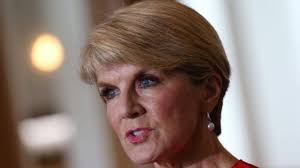Prime Minister Malcolm Turnbull and Chinese Premier Li Keqiang have signed a deal to further boost trade between the two countries, including an agreement to boost chilled beef exports. Julie Bishop, Michael Keenan move to head off backbench revolt James Massola - Amy Remeikis MARCH 27 2017 Ms Bishop and Mr Keenan called the snap meeting of MPs on Monday morning in a move designed to head off those rising concerns. About a dozen Coalition MPs attended the hour-long meeting late on Monday afternoon, with more than one participant describing it as "tense". An MP in the room said the prospect of Liberal MPs crossing the floor to disallow the motion had not been discussed in the meeting. However, that dramatic move had been discussed before and after the meeting, because of serious concerns about the treaty, which will facilitate the two nations being able to return an accused criminal to the other country to face trial. If Labor decided to disallow the treaty, which would effectively kill it off, it would not be necessary for Coalition MPs to have to cross the floor.  Julie Bishop has moved to head off a backbench revolt over a China-Australia extradition treaty. Photo: Ore Huiying Australian Conservatives senator Cory Bernardi announced last week that he planned to disallow the treaty, citing concerns about the treaty's human rights safeguards, the 99.9 per cent conviction rate in Chinese courts in 2015 and the fact Australia would be the first of the "five eyes" nations - an intelligence alliance with the US, Britain, Canada and New Zealand - to sign a bilateral extradition treaty with China. The ALP will discuss the matter at its shadow cabinet meeting on Monday night and formally adopt a position on Tuesday when the caucus meets. The federal opposition is expected to join Senator Bernardi, the Greens and the Nick Xenophon Team and disallow the treaty. The Turnbull government quietly tabled the treaty, which was signed by former prime minister John Howard in 2007 but has never been ratified on March 2. It can be disallowed by the Senate or the House within 15 sitting days, otherwise it will come into effect. Prime Minister Malcolm Turnbull defended the treaty on Monday, arguing it had been entered into many years ago and needed to be ratified. "We are urging the opposition and the crossbenchers to support the ratification. There are very considerable protections in the treaty and it is an important part of our co-operation with China on law enforcement," he said. "I just note today a very large, yet another very large drug bust - well over $100 million of methamphetamine, which has been intercepted, which had it not been for that co-operation, would have been on the streets in Australia destroying Australian lives. So that co-operation is very important." The federal government argues sufficient safeguards are in place and that the treaty would allow Australia to refuse extradition where a person could face the death penalty, torture, cruel treatment, or face political charges. The Law Council has consistently advised against ratifying the treaty because "suspects cannot be assured a fair trial given the inadequate separation between Chinese courts and the Chinese government". |


